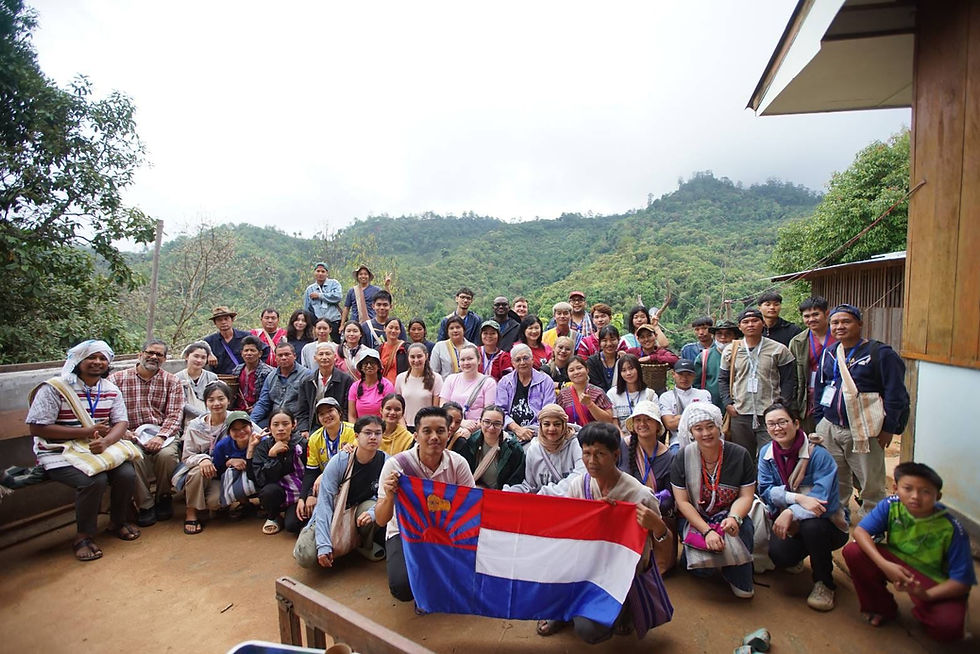4 Scientists & Inventors Who’ve Made #IndigenousImpact
- communications241
- Jun 17, 2024
- 3 min read

Indigenous People’s Day is an opportunity to celebrate the strength, brilliance and excellence in Indigenous identity. In fact, our world wouldn’t look like it does today without the work and impact of Indigenous people from across Turtle Island. This week, we’re highlighting #IndigenousImpact across “Scientists & Inventors”, “Authors”, “Athletes”, and “Leaders”. We're sharing stories that aim to acknowledge their legacies and inspire future generations to continue in their path.
Below are the stories of four Indigenous scientists and inventors that have participated in changing our world.

Olivia Poole, a Canadian mother and inventor, revolutionized baby care with the creation of the Jolly Jumper in 1910. Inspired by her Ojibwe heritage, she designed this innovative baby exerciser after observing how her children were soothed by being swaddled in cradleboards. Poole crafted the first Jolly Jumper from a cloth diaper and a spring, allowing babies to bounce and move freely while remaining safely supported. This invention not only entertained infants but also promoted their physical development. In 1948, recognizing its widespread appeal and potential, Poole and her son Joseph Poole commercialized the Jolly Jumper. The product quickly became a household staple in North America, beloved for its simplicity and effectiveness. Olivia Poole's Jolly Jumper remains a popular item, continuing to provide joy and developmental benefits to babies over a century later. Her legacy endures through this timeless invention that blends cultural tradition with practical innovation.

John Herrington, a member of the Chickasaw Nation, made history as the first Indigenous person in space. Born on September 14, 1958, in Wetumka, Oklahoma, Herrington's journey to space began with a strong educational foundation in applied mathematics and aeronautical engineering. His illustrious career with NASA culminated in his selection as a mission specialist for STS-113, a Space Shuttle Endeavour mission, in 2002.
During this mission, Herrington logged over 330 hours in space and completed three spacewalks, contributing significantly to the assembly of the International Space Station. His achievements resonated deeply within Indigenous communities, symbolizing the breaking of barriers and the pursuit of excellence. During his inaugural spacewalk, Harrington carried with him six eagle feathers, a braid of sweet grass, two arrowheads and the flag of the Chickasaw Nation.
Herrington's legacy extends beyond his spaceflight; he is an advocate for STEM education, inspiring Indigenous youth to pursue careers in science and engineering. His spirit and dedication continue to motivate future generations, embodying the potential to reach for the stars.

Dr. Kona Williams, Canada's first Indigenous forensic pathologist, is a trailblazer in her field. Of Cree and Mohawk descent, she combines her medical expertise with a profound cultural understanding. Dr. Williams plays a crucial role in investigating unexplained deaths, ensuring justice and closure for families. She is a vocal advocate for Indigenous health and the need for cultural sensitivity in medicine. Kona's experience and insight have led her to work on high-profile and complex issues in Thunder Bay and Northwest Ontario, including residential schools, the Broken Trust reinvestigations, and Missing and Murdered Indigenous Women and Girls. Her work not only advances forensic pathology but also highlights the importance of representation and diversity in healthcare. Dr. Williams' dedication and leadership in her achievements continue to inspire and pave the way for future generations of Indigenous people in medicine.

Aaron Yazzie, a Diné (Navajo Nation) mechanical engineer, has made significant contributions to space exploration through his work at NASA's Jet Propulsion Laboratory. A graduate of Stanford University, Yazzie's expertise was instrumental in developing key components for the Mars rovers, particularly in designing devices that enable scientific instruments to analyze the Martian atmosphere and surface. His work on missions like Curiosity and Perseverance has advanced our understanding of Mars, showcasing his engineering prowess. Yazzie is also a passionate advocate for STEM education, inspiring Indigenous youth to pursue careers in science and engineering, and highlighting the importance of diverse perspectives in technological advancements.
Tune in tomorrow where we'll be exploring writers who've made #IndigenousImpact



